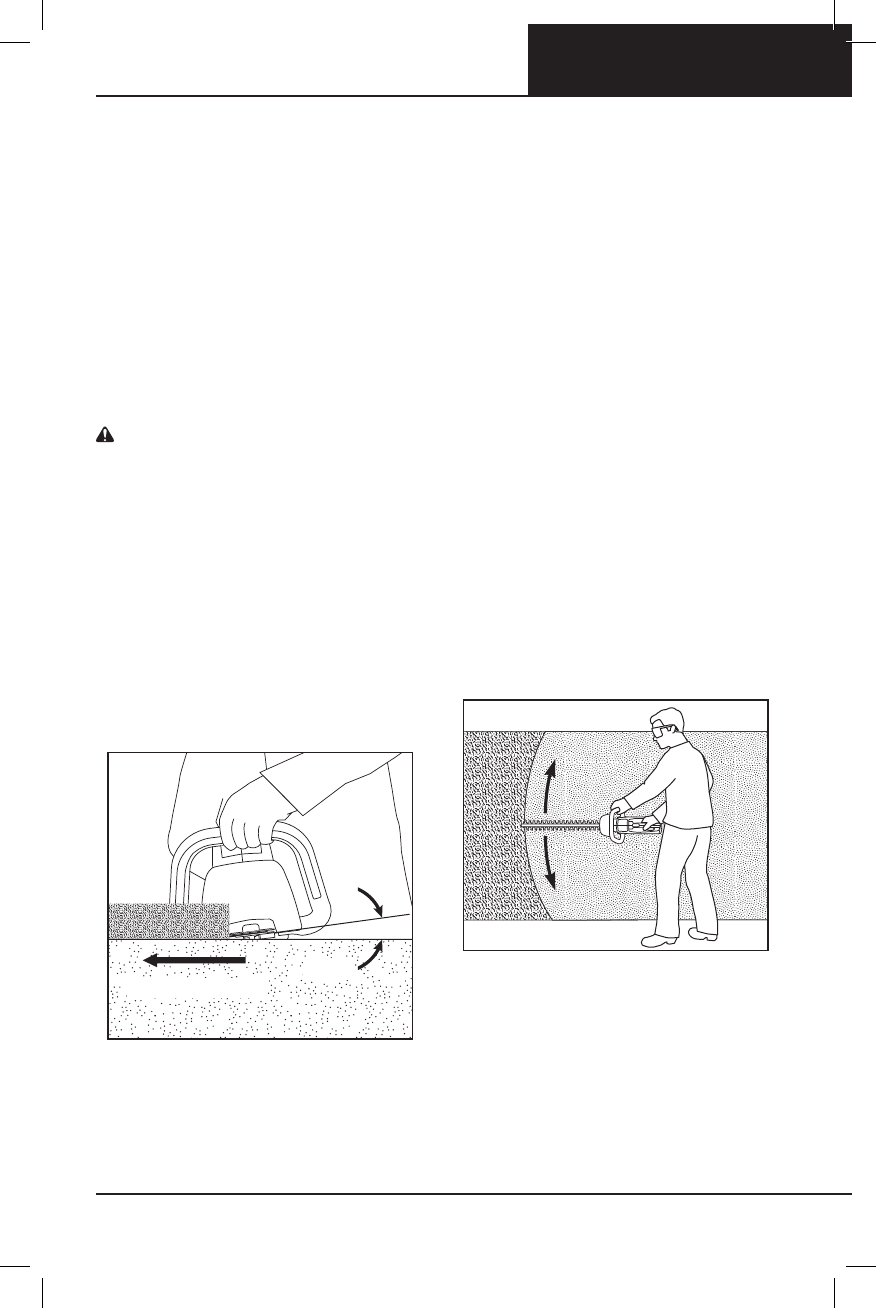
19
OPERATING THE HEDGE TRIMMER
OREGON® CORDLESS TOOL SYSTEM
HEDGE TRIMMER MODEL HT255
AD 0213 F/N 558936
CUTTING HEDGES
WHEN TO CUT
The ideal time to trim hedges varies by
plant type, but it is generally a good
practice to trim during periods of slow
growth, after blooming is complete.
Consult with a local plant nursery for tips
on trimming specific plants.
Observe all applicable national and
municipal rules and regulations for
cutting hedges.
BASIC CUTTING
WARNING: ALWAYS BE SURE OF
FOOTING AND HOLD THE HEDGE
TRIMMER FIRMLY WITH BOTH
HANDS WHILE THE MOTOR IS
RUNNING.
Check the hedge for foreign objects prior
to cutting to avoid damaging the blades.
Remove any objects that may impede
cutting.
Assume the proper grip and stance and
start the hedge trimmer. Hold the hedge
trimmer with the cutting blades angled
–° toward the direction of the cut
(Fig. ).
IMPORTANT: THE CUTTING BLADES
OCCASIONALLY BIND AND STOP
MOVING WHEN MATERIAL BECOMES
LODGED IN THE CUTTING BLADES
OR IF CUTTING BLADES CONTACT
A WIRE OR CHAINLINK FENCE. SEE
“CORRECTING BLADE BIND” TO
LEARN HOW TO FIX THIS.
CUTTING SEQUENCE
If the hedge is well-trained, focus on
trimming new growth until the hedge is
in the desired shape.
Once any large branches are removed,
use the hedge trimmer to trim the sides
of the hedge to the desired length. Trim
the top of hedge last after the sides are
complete.
CUTTING VERTICALLY
When cutting the sides of the hedge,
start at the bottom of the hedge. Hold
the hedge trimmer with the cutting
blades angled –° toward the direction
of the cut. Move down the line of the
hedge, sweeping the hedge trimmer
slowly up and down in a wide arc (Fig. ).
510°
DIRECTION OF CUT
FIG. 16
FIG. 17


















